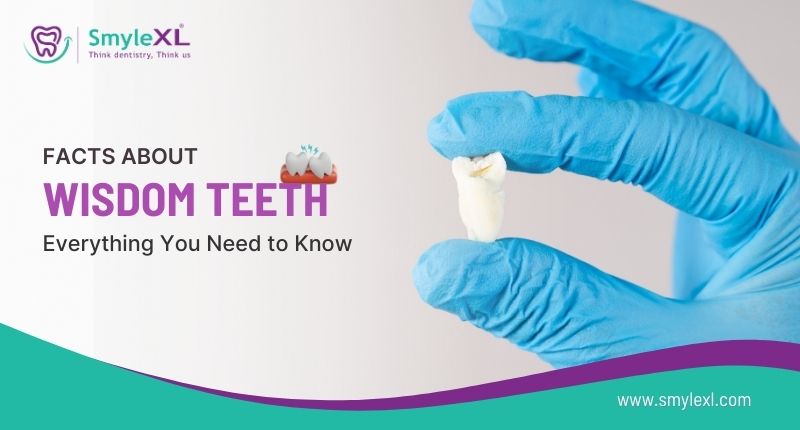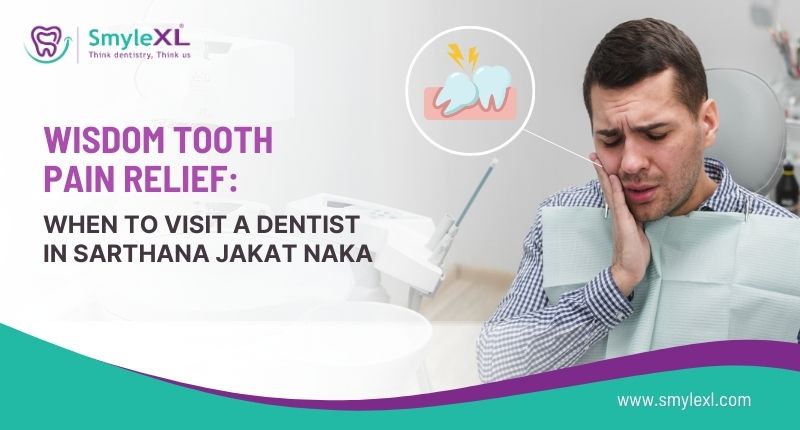Wisdom teeth, often covered in mystery, are the last molars to enter your mouth. While they were once crucial for our ancestors, we usually find these teeth more troublesome than helpful today. Let’s explore everything you need to know about wisdom teeth, from their origins to why they sometimes need to be gotten rid of.
What Are Wisdom Teeth?
Wisdom teeth are the third set of molars located at the very back of your mouth. They typically emerge from the age of 17, often referred to as the “age of wisdom,” hence their name.
Fun fact: Not everyone gets wisdom teeth! Some people are born with fewer than four or none at all.
Why Do We Have Wisdom Teeth?
Long ago, our ancestors relied on wisdom teeth to chew tough foods like roots, nuts, and raw meat. Back then, losing teeth due to wear or decay was common, so having extra molars was helpful.
Today, thanks to softer diets and better dental care, wisdom teeth are more like spare parts that we don’t always need.
Why Do Wisdom Teeth Cause Problems?
For many people, wisdom teeth don’t have enough room to grow properly. This can lead to a variety of issues, such as:
Impaction: Teeth remain trapped under the gums or push against other teeth.
Partial Eruption: Teeth break through the gum only halfway, creating a pocket for bacteria.
Misalignment: Growth of wisdom teeth can shift your other teeth out of place.
Signs Your Wisdom Teeth May Be Troubling You
Keep an eye out for these common symptoms:
1. Pain or swelling at the back of your jaw.
2. Gum tenderness or redness.
3. Difficulty opening your mouth or chewing.
4. Persistent bad breath or a foul taste.
If you experience any of these, it’s time to visit your dentist for a check-up.
Do All Wisdom Teeth Need Removal?
Not necessarily! If your wisdom teeth:
1. Grow in properly,
2. Don’t cause pain or crowding,
3. And are easy to clean,
Then, you may not need to remove them. However, dentists often recommend removal if they pose a risk to your oral health.
The Wisdom Tooth Removal Process
If extraction is necessary, here’s what you can expect:
X-rays and Evaluation: Your dentist or oral surgeon will assess the position of your wisdom teeth.
Anesthesia: Local or general anesthesia ensures a pain-free experience.
Extraction: The teeth are carefully removed, sometimes in sections if impacted.
Recovery: Healing usually takes a week or two, with instructions to manage swelling and prevent infections.
Myths About Wisdom Teeth
Let’s clear up some common misconceptions:
Myth: Everyone needs their wisdom teeth removed.
Truth: Many people keep theirs without any problems.
Myth: Wisdom teeth cause all tooth alignment issues.
Truth: While they can contribute, other factors like genetics or habits also play a role.
Caring for Wisdom Teeth
Whether you still have your wisdom teeth or have undergone extraction, proper oral care is essential:
1. Brush and floss daily, paying special attention to the back of your mouth.
2. Use an antiseptic mouthwash to keep bacteria at bay.
3. Visit your dentist regularly for check-ups.
Wisdom teeth are a fascinating part of our dental history, but they don’t always fit into our modern mouths. Knowing the facts can assist you make wise decisions about their care.
If you’re curious about your wisdom teeth or suspect they’re causing trouble, don’t wait—consult your dentist. A little wisdom goes a long way toward keeping your smile healthy and pain-free!










